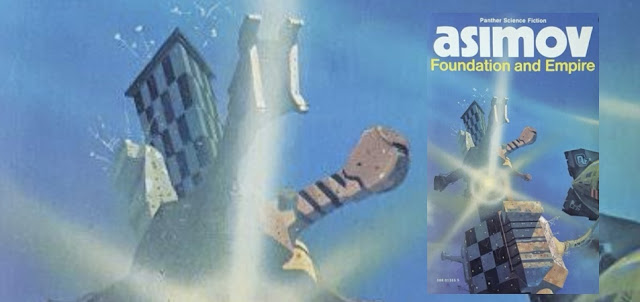Isaac Asimov's second in the Foundation trilogy, Foundation and Empire, starts with an ambitious general of the Galactic Empire taking the onerous responsibility of defeating the Foundation's expansion at the end of the galaxy. But how are one military man's bold plans perceived by the leaders of the now stagnant Empire?
The long-dead Foundation's founder, Harry Seldon, has accurately predicted the General's outcome. However, in Part Two, a new, less predictable adversary threatens the Foundation, seemingly winning large sways of the Foundation's planetary territory with little effort. The Mule, a human mutant possessing extraordinary psychic powers, sets the stage for the Foundation's greatest challenge.
Although his writing style could be considered dated, with 3rd person POV and minimal character development, Asimov still swept me up in his grand saga. He tends to describe less of the character's feelings and more of their relationships to the galactic events that sweep over their lives, with an ever-witty style that is easy to enjoy.
In part, his trilogy is space opera, but Asimov inserts grander political events throughout, events based on the rise and fall of previous great human empires, particularly Rome. In all, a thinking person's space opera. It is written 70 years ago and remains a timeless tale that offers insights into the potential fate of current global empires. He deserves all the accolades that have come his way. 5 STARS

